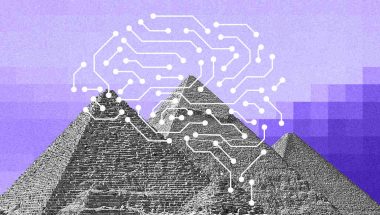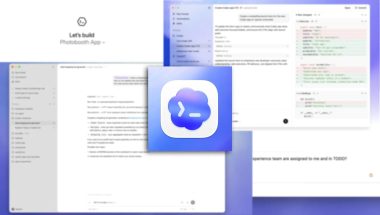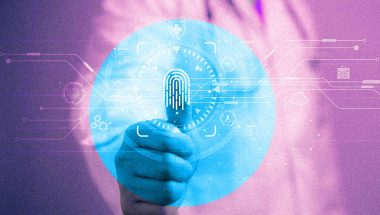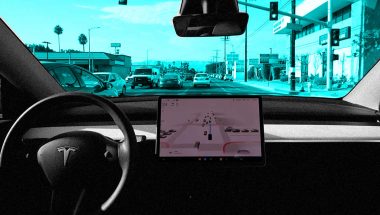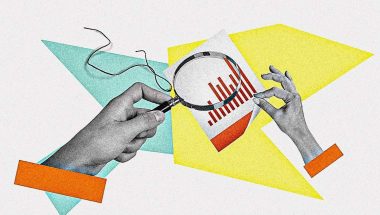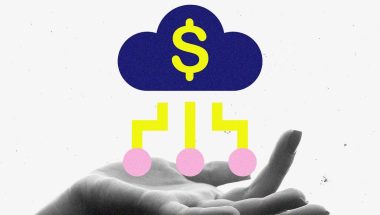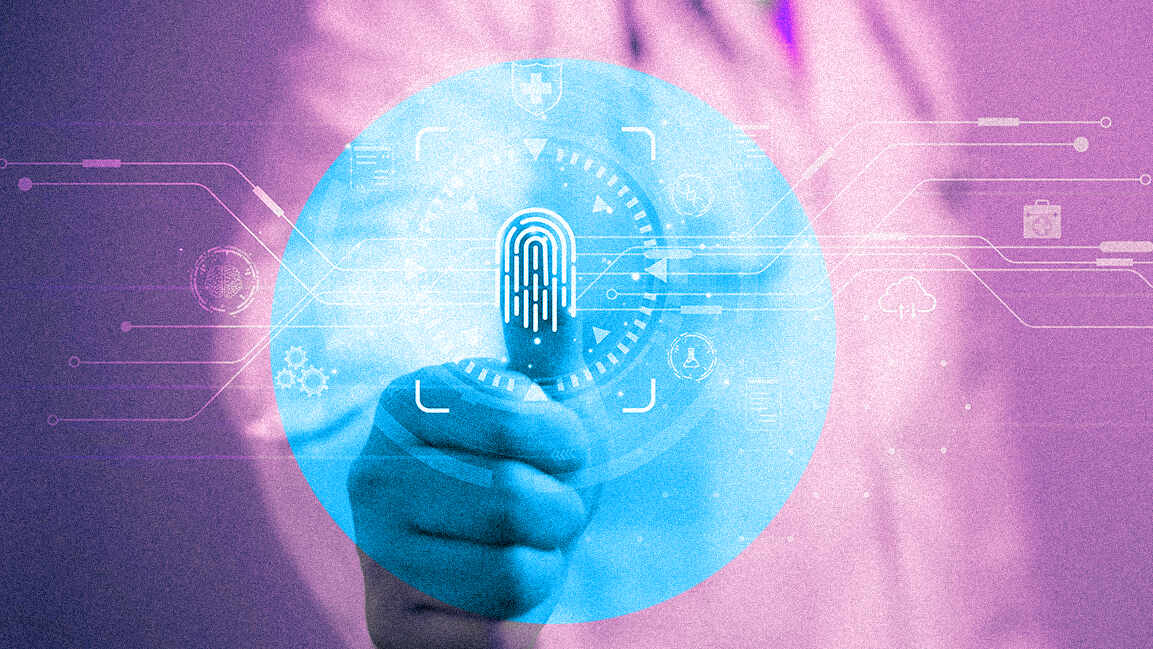- | 9:00 am
Gen Z is AI native. That can make them an important part of the workforce
Gen Z and artificial intelligence are a recipe for company growth, if leaders equip them with the necessary skills.

“Do you know how to use ChatGPT?” a recruiter once asked me during an interview for a writing position. They informed me that I would use the AI tool to write “quality copy” for the job, saving the company time.
I was astounded and then realized that AI is a companion in most jobs now, as this new wave of AI has captured the public interest.
Navigating the workforce is no simple task — enter a new generation of technological users locked and loaded with all things AI.
“In today’s rapidly evolving digital landscape, one generation stands out for its inherent fluency with technology — Gen Z,” says David Jones, CEO of The Talent Enterprise.
According to the World Economic Forum, this under-25 demographic will account for more than a quarter of the workforce by 2025, a workforce that is becoming increasingly infused with AI usage.
Is this digitally native generation equipped to work alongside AI, and how are leaders helping to bridge this gap?
TECH HEADSTART
Thanks to schools and universities increasingly incorporating digital literacy from coding to AI into their curricula, Gen Z comes from an early understanding of this technology and its implications.
“Gen Z speaks the language of AI, not as a second language but as a native tongue. They understand its nuances, its potential, and its limitations. This fluency allows them to quickly adapt to new AI technologies, reducing the learning curve that often hampers the implementation of innovative solutions,” says Alexander Epure, CEO and Co-founder of Hub71 AI startup Qureos based in the UAE.
Jones also notes that Gen Z welcomes AI in their everyday lives. “Be it curated playlists, personalized learning experiences, or even AI-driven career guidance, the capacity for AI to adapt and cater to individual preferences resonates strongly with Gen Z.”
“AI has been an unobtrusive companion in their lives. This familiarity breeds comfort: for Gen Z, using AI isn’t a leap, but a small step,” he adds.
While Gen Z appreciates AI’s potential to offer personalized services, optimize experiences, and provide quick solutions to common issues, there is also a pressing concern about job displacement and increased automation, enabling them to “view AI as both an opportunity and a challenge,” says Pinar Yucealp, HR Director IBM Middle East & Africa.
“They are entering the workforce during rapid technological change and worry about AI’s potential to make certain jobs obsolete.”
Similarly, this demographic has a nuanced blend of confidence, curiosity, and a growth mindset, which can distinguish them from the generations that came before and lay a burden on how they view AI.
“Leaders should view Gen Z’s comfort with AI as an asset and a liability. On one hand, they are quick to adopt and adapt to new technologies. On the other hand, this familiarity can lead to overestimating AI’s capabilities or underestimating its ethical and social implications,” says Epure.
LEAD THE WAY
There are a few ways leaders can debunk the myths about AI for Gen Z to better understand its utilization. One of those is education.
“We have a role in ensuring that industry and public institutions have the people, skills, and resources to be a leader in the use of AI and its various technological tools,” says Timothy Baldwin, Acting Provost, Department Chair of Natural Language Processing, and Professor of Natural Language Processing at Mohamed bin Zayed University of Artificial Intelligence (MBZUAI).
At this graduate-level research-based AI university, students are encouraged to become independent AI career researchers, adds Baldwin. “They are advised to know how to identify and discuss AI projects with a range of clients and are exposed to many UAE and multinational organizations at the annual Internships and Opportunities Fair held on campus.”
Reassuring Gen Z of AI’s capabilities can also go a long way. Despite all of AI’s help in augmenting the work environment, it is safe to say that it also has limitations regarding understanding context, emotional intelligence, and the sense of meaning typically found in human interaction.
Jones suggests a give-and-take learning experience whereby leaders and Gen Z learn from each other.
“Older leaders can bridge this experiential gap by taking on multifaceted roles — mentors, coaches, and learners. Reverse mentoring, where younger employees educate older ones about new technologies or perspectives, should be welcomed. Open dialogues, sharing of experiences, and targeted feedback can help younger employees contextualize their tech-savvy approach within the broader framework,” says Jones.
Furthermore, leaders can present Gen Z with scenarios where AI has created more jobs than it has replaced and stress that AI will not supersede humans but rather enhance the efficiency, pace, and quality of work.
“Hands-on mentorship programs can pair Gen Z employees with seasoned professionals who have navigated the complexities of integrating technology and human expertise. Additionally, leaders can encourage a culture of continuous learning, where Gen Z can apply their AI fluency more nuanced and effectively,” notes Epure.
Yucealp echoes this statement, saying that companies should invest more in training programs that equip Gen Z workers with new skills relevant to AI. She also advises emphasizing the balance between automation and human interaction.
Another proposal Yucealp gives highlights how AI can contribute to sustainable practices and environmental preservation as it resonates with Gen Z’s values and concerns.
“Gen Z has strong interests in sustainability and green initiatives and views AI’s ability to track energy consumption, optimize renewable energy sources, and provide real-time updates on environmental impact as crucial steps toward a more sustainable future.”
LOOK TO THE FUTURE
The future of AI in the workforce will expand – so long as people are continuously reskilled to understand and work alongside the evolving AI capabilities. “AI will increasingly handle repetitive tasks, leading to enhanced productivity and the development of new roles centered around AI implementation and management,” says Yucealp.
Baldwin advises students to keep up with emerging technologies. ”Due to the speed in which technology transforms, they must be agile and be able to reinvent themselves based on industry needs.”
“Students should be able to demonstrate their ability to show innovation and AI development to enable companies to ‘take risks’ and ‘believe in them’”
Gen Z proves a valuable resource for the future of AI in the workforce when it comes to streamlining processes as their AI fluency places them at an advantage: the ability to identify inefficiencies that those less familiar with technology might miss.
”Their comfort with data analytics and machine learning allows them to offer insights that can transform cumbersome processes into streamlined operations. In a region where agility can make or break a business, this is invaluable,” says Epure.
Moreover, Epure notes that Gen Z’s comfort with AI promotes a culture of innovation as they know how to use the tools and extend beyond the tools’ boundaries. “This is crucial for businesses in the Middle East looking to lead in sectors ranging from fintech to renewable energy.”
“Gen Z will undoubtedly be at the forefront, guiding us through these advancements as we venture further into the AI realm.”











